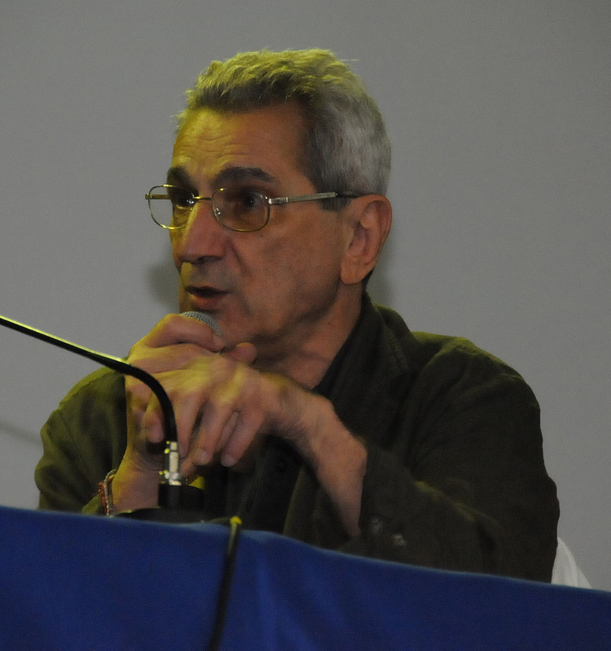“multitude is an open and expansive project”
107
Multitude: War and Democracy in the Age of Empire
Antonio "Toni" Negri is an Italian Marxist sociologist and political philosopher, best known for his co-authorship of Empire and secondarily for his work on Spinoza.
Born in Padua, he became a political philosophy professor in his hometown university. Negri founded the Potere Operaio group in 1969 and was a leading member of Autonomia Operaia. As one of the most popular theorists of Autonomism, he has published hugely influential books urging "revolutionary consciousness."
He was accused in the late 1970s of various charges including being the mastermind of the left-wing urban guerrilla organization Red Brigades , involved in the May 1978 kidnapping of Aldo Moro, two-time Prime Minister of Italy, and leader of the Christian-Democrat Party, among others. He was wrongly suspected to have made a threatening phone call on behalf of the BR, but the court was unable to conclusively prove his ties. The question of Negri's complicity with left-wing extremism is a controversial subject. He was indicted on a number of charges, including "association and insurrection against the state" , and sentenced for involvement in two murders.
Negri fled to France where, protected by the Mitterrand doctrine, he taught at the Paris VIII and the Collège international de philosophie, along with Jacques Derrida, Michel Foucault and Gilles Deleuze. In 1997, after a plea-bargain that reduced his prison time from 30 to 13 years, he returned to Italy to serve the end of his sentence. Many of his most influential books were published while he was behind bars. He now lives in Venice and Paris with his partner, the French philosopher Judith Revel.

“multitude is an open and expansive project”
107
Multitude: War and Democracy in the Age of Empire
136
Multitude: War and Democracy in the Age of Empire
Affective labor, then, is labor that produces or manipulates affects such as a feeling of ease, well-being, satisfaction, excitement, or passion.
108
Multitude: War and Democracy in the Age of Empire
88
Multitude: War and Democracy in the Age of Empire
“The possibility of democracy on a global scale is emerging today for the very first time.”
xi
Multitude: War and Democracy in the Age of Empire
133
Multitude: War and Democracy in the Age of Empire
145
Multitude: War and Democracy in the Age of Empire
86-87
Multitude: War and Democracy in the Age of Empire
112
Multitude: War and Democracy in the Age of Empire
226
Multitude: War and Democracy in the Age of Empire
107
Multitude: War and Democracy in the Age of Empire
85
Multitude: War and Democracy in the Age of Empire
(129)
Multitude: War and Democracy in the Age of Empire
114
Multitude: War and Democracy in the Age of Empire
94
Multitude: War and Democracy in the Age of Empire
Multitude: War and Democracy in the Age of Empire
270
Multitude: War and Democracy in the Age of Empire
Multitude: War and Democracy in the Age of Empire
147
Multitude: War and Democracy in the Age of Empire
135
Multitude: War and Democracy in the Age of Empire
130
Multitude: War and Democracy in the Age of Empire
131
Multitude: War and Democracy in the Age of Empire
39
Multitude: War and Democracy in the Age of Empire
49
Multitude: War and Democracy in the Age of Empire
105
Multitude: War and Democracy in the Age of Empire
Tariq Ali, How Bush Used 9/11 to Remap the World. CounterPunch, 8 July 2002.
Empire, About Empire